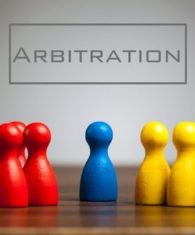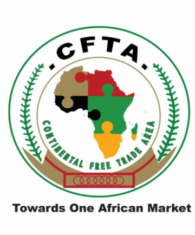A GUIDE TO INTELLECTUAL PROPERTY PROTECTION IN NIGERIA
Dear Subscriber,
The World Intellectual Property Organization (WIPO) defines Intellectual Property as “creations of the mind, inventions, literary and artistic works and symbols, names, images and designs in commerce”.
With the world becoming a global village, the importance and reach of Intellectual Property has assumed a more advanced dimension and has become a sine qua non in domestic and cross border business especially in the areas of licensing and technology transfer.
Just as laws have been put in place to ensure protection of tangible properties or assets, it is expedient to also examine the laws that are in place to protect, manage and enforce intangible property.
REGULATORY FRAMEWORK FOR INTELLECTUAL PROPERTY IN NIGERIA
In addition to common law principles, Nigeria has several laws to regulate and ensure the protection of intellectual property. These laws include:
- Nigerian Copyright Act
- Patents and Designs Act
- Trade Marks Act
- The Merchandise Marks Act.
Asides from its local’s laws, Nigeria has also ratified several treaties relating to the protection of intellectual property. Among these treaties are: the Paris Convention for the Protection of Industrial Property, the Rome Convention, the Patent Law Treaty and the Patent Cooperation Treaty
It is important to note that Nigerian law does not prohibit foreign businesses from holding Intellectual Property rights in Nigeria, whether directly, through a Nigerian subsidiary or through a Nigerian agent or partner.
TYPES OF INTELLECTUAL PROPERTY PROTECTION AVAILABLE IN NIGERIA
Copyright
This is a right or protection given to persons who have come up with ingenious creative works that have been expressed and not merely ideas. It seeks to provide a platform for such persons to enjoy the fruits of their labour as it prevents the copying or reproduction of such works without the permission of the author.
However, it is not all works that are eligible for protection. The Copyright Act provides that the works to be protected include:
- Literary works (novels, stories, poetical works, plays, computer programmes, letters, encyclopedias, law reports, etc);
- Artistic works (paintings, drawings, maps, plans, woodcuts, works of architecture, sculpture, craftsmanship, etc);
- Musical works (musical notations and compositions);
- Films;
- Sound recordings;
- Broadcasts
Copyright in literary, musical or artistic works other than photographs will last for 70 years after the end of the year the author dies. In respect of cinematograph films and photographs, copyright expires 50 years after the end of the year in which the first recording was made. In the case of a broadcast it expires 50 years after the end of the year in which the broadcast took place.
Trademarks
Trademarks are words, phrases, signs, drawings, marks, shapes, etc. that distinguishes the products and services of a particular business from others. Apart from identifying the products or services, trademarks give a business an image or reputation customers can embrace and stick to for as long as they wish.
Unlike copyrights, for trademark to be protected, it must be registered. This gives the owner or proprietor of the trademark an exclusive right to use the mark in respect of the goods and services for which it is registered.
The Trademarks Act provides for an application for registration to be made to the Registrar (either via the online portal or physically at the trademark Registry). However, this is dependent on some factors such as whether or not such mark is similar to an existing trademark or is likely to cause confusion in the minds of persons accustomed to that existing trademark.
Patents
This basically involves the protection of an entirely new invention either a process or product. For the invention to be patentable:
- It must be new or an improvement on an existing patented invention,
- must have been the result of an inventive activity
- and must be capable of industrial application.
The import of the above criteria is that the invention must not be a mere addition to the amount of human knowledge. It must be the result of a different method or application that has been applied. The product or process must be such that it can be used or manufactured in any kind of industry including agriculture.
The patent right is usually granted to the one who files the application for grant of patent first, persons to whom it has been assigned, persons who employ or commission others to make an invention or persons to whom a contractual license has been granted. A patent expires at the end of the 20th year from the date of the filing of the application. They are however, renewed annually.
PROTECTION AND ENFORCEMENT OF INTELLECTUAL PROPERTY
One of the ways to ensure protection of Intellectual Property rights is by instituting a civil or criminal suit before the Federal High Court which has exclusive jurisdiction over matters and disputes affecting intellectual property disputes. The Court is empowered to grant reliefs, damages or make relevant orders and injunctions. Arbitration may also be resorted to in the event of disputes.
There are also governmental agencies responsible for enforcement of intellectual property rights such as the National Agency for Food, Drug, Administration and Control (NAFDAC), Nigeria Custom Services (NCS), Standards Organizations of Nigeria, Consumer Protection Council (CPC), Nigeria Copyright Commission (NCC). These agencies are empowered to regulate intellectual property protection in the relevant industries.
IMPACT OF INTELLECTUAL PROPERTY ON COMMERCE
Businesses that protect their innovations and ideas remain relevant and are better prepared for the competitive market.
Studies have shown that Intellectual Property intensive industries in advanced countries have contributed tremendously to both national and state economies. For instance, America’s Intellectual Property asset is worth about $5 trillion.
Intellectual Property encourages inventors or manufacturers to come up with more innovations that will enhance and improve the economy and the society at large, thus where there is a strong platform for protection of Intellectual Property rights, more quality products and services are assured.








